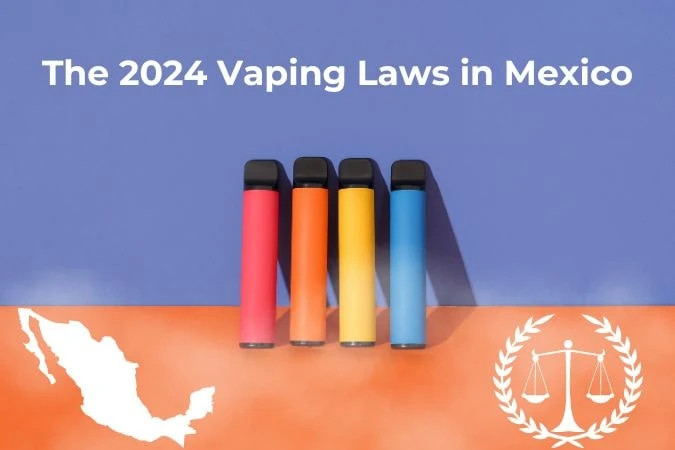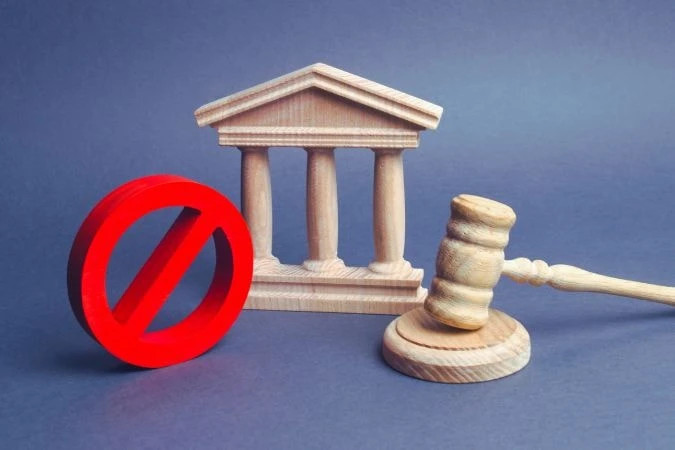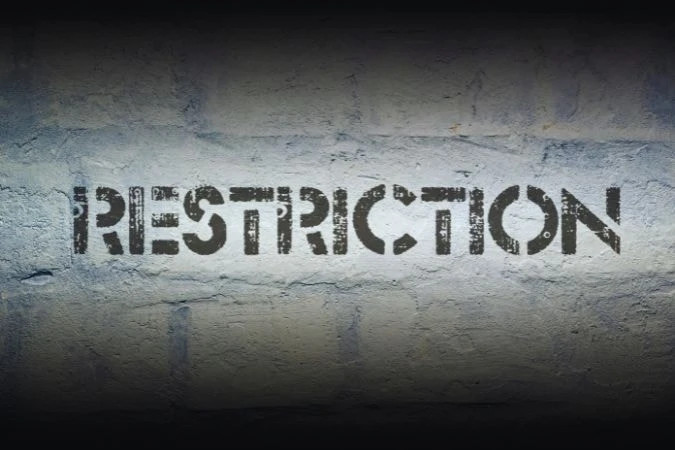Are you curious about the legal status of vaping in Mexico? As 2024 unfolds, Mexico’s vaping regulations are constantly evolving. At gaymexico.net, we’ll provide you with the latest information, focusing on the crucial question: Can you buy vapes in Mexico in 2024? Understanding these laws is essential for both visitors and residents, ensuring you stay informed and compliant. Explore our site for more LGBTQ+ travel tips and guidance, and discover legal vaping alternatives today, while staying safe and healthy!
1. Understanding the Current Landscape of Vaping Laws in Mexico
Is vaping legal in Mexico? The simple answer is: it’s complicated. As of late 2024, purchasing vapes and electronic cigarettes in Mexico is officially prohibited due to a presidential decree aimed at safeguarding public health. However, recent rulings by the Supreme Court have deemed this ban unconstitutional, opening up a complex legal landscape for manufacturers, retailers, and consumers alike.
This means that while a general ban remains in place, individual businesses can challenge the prohibition in court. If successful, they can legally sell e-cigarettes. This situation creates uncertainty and makes it crucial to stay informed about the latest developments in vaping legislation.
1.1 Impact on Manufacturers
The implications for manufacturers are significant. The manufacture of vaping products in Mexico faces heavy restrictions. Non-compliance with these regulations can result in hefty penalties. Advertising e-cigarettes is also tightly controlled, with substantial fines for violations. These stringent measures aim to limit the promotion and availability of vaping products across the country.
1.2 Challenges for Retailers and Distributors
For retailers and distributors, navigating Mexico’s vaping laws presents numerous challenges. Currently, only those businesses that have successfully challenged the ban in court can legally sell e-cigarettes. This legal hurdle requires time and financial investment, making it difficult for many retailers to operate. Additionally, selling vaping devices to minors is strictly prohibited, with severe penalties for those who violate this regulation. The Mexican government imposes significant fines, potentially reaching thousands of dollars, on offenders.
1.3 Implications for Consumers
What does this mean for consumers? Legally, individuals can bring vapes into Mexico for personal use, but there are restrictions on the quantities allowed. Using e-cigarettes in public spaces can lead to fines, with vaping generally restricted to designated smoking areas. It is essential for consumers to remain updated on the evolving regulations to ensure compliance and protect their rights. The legal landscape is continuously shifting, so staying informed is key.
2. Navigating the 2024 Vaping Laws in Mexico
What specific regulations should you be aware of? The vaping laws in Mexico are multifaceted, encompassing licensing, product standards, and marketing restrictions. Understanding these aspects is crucial for anyone involved in the vaping industry or considering vaping in Mexico. The following sections delve into these regulations, offering a detailed overview of what to expect in 2024.
2.1 Licensing and Permits
Do retailers need special licenses to sell vaping products? Yes, retailers are required to meet stringent requirements to obtain licenses for selling vaping products legally. This process involves demonstrating compliance with safety and health regulations and ensuring that their business premises are suitable for selling these items, in accordance with local zoning laws. Failure to meet these requirements can lead to denial of a license and significant penalties.
 Licensing and Permits for selling vaping products.webp
Licensing and Permits for selling vaping products.webp
2.2 Guidelines for Distributors
What guidelines must distributors follow? Distributors face equally rigorous guidelines for legally circulating vaping products. This includes registering their businesses and products with the appropriate health authorities and maintaining detailed records of all transactions to ensure product traceability. Compliance with these regulations is vital to avoid violating product distribution laws, which can result in severe sanctions.
2.3 The Application Process
What does the application process entail? The process of applying for licenses involves multiple steps and requires thorough documentation. Retailers and distributors must submit comprehensive paperwork that proves adherence to all relevant regulations. This includes providing safety certifications, proof of financial stability, and detailed business plans. Licenses are subject to annual renewal, necessitating continuous compliance with legal standards. Any deviation from these standards can result in license revocation and hefty fines.
2.4 Product Standards and Restrictions
Are there age restrictions for buying vapes? Yes, in Mexico, individuals must be at least 18 years old to purchase or use vaping products. Retailers are obligated to verify the age of buyers meticulously. Selling electronic cigarettes to minors is a criminal offense, punishable by substantial fines and potential imprisonment.
2.4.1 Packaging and Labeling
What are the packaging and labeling requirements? The regulated vaping market adheres to strict packaging and labeling guidelines. All packaging must include clear and conspicuous warnings about the potential health risks associated with vaping. Labels must also display detailed information about nicotine content and other key ingredients. Misleading or false labeling is strictly prohibited, with severe penalties, including product seizures and business fines, for violators.
2.4.2 Prohibited Ingredients
Are certain ingredients banned in vaping products? Yes, Mexican law prohibits the use of certain ingredients in vaping products. These include harmful additives and flavors that may be appealing to minors. Manufacturers and importers must comply with ingredient limits to avoid legal issues. Products found to contain banned substances are subject to confiscation, and sellers may face legal action.
2.5 Marketing and Advertising Regulations
How are vaping devices marketed in Mexico? The marketing and advertising of vaping devices are subject to stringent smoking laws. Advertisements cannot target minors or imply that vaping is a safe alternative to smoking. Advertising in public spaces, such as billboards and public transport, is prohibited. All promotional content must include health warnings and avoid appealing to young audiences.
2.5.1 Compliance with Local and National Regulations
What compliance measures must companies take? Companies must ensure that their marketing strategies comply with both local and national regulations. Adherence to state and local advertising laws is essential. Non-compliance can lead to severe fines, business closures, and long-term legal ramifications. Marketers must stay informed about any legislative changes to maintain lawful promotional activities.
3. The Supreme Court Ruling and Its Impact on Vaping Laws
How has the Supreme Court influenced vaping laws? Mexico’s Supreme Court recently addressed the contentious issue of vaping by ruling on the constitutionality of the presidential decree banning e-cigarettes. This landmark decision determined that the ban violates the right to freedom of commerce, specifically highlighting the right to seek legal protection against such decrees.
3.1 How the Ruling Affects the Vaping Industry
What are the practical effects of this ruling? The Supreme Court’s decision does not immediately lift the ban on e-cigarettes nationwide. Instead, it applies specifically to businesses that were parties to the case. This leaves the industry in a precarious state, as other businesses must also pursue legal action to defend their right to sell these products.
 The Supreme Court Ruling on Mexican Vaping Laws.webp
The Supreme Court Ruling on Mexican Vaping Laws.webp
Notably, experts like Alberto Gómez Hernández of the World Vapers’ Alliance argue that the decree violates not only commercial freedoms but also the rights to health and personal development of Mexican adults. He encourages other retailers to challenge the vape laws and seek similar legal protection.
Despite this victory, the general prohibition remains in effect, indicating that further legal challenges and public discourse will be necessary to effect widespread change. Critics argue that the ban has exacerbated public health issues and driven the market underground, controlled by illicit entities.
Advocates suggest that Mexico should consider models like Sweden and the UK, which use vapes as a smoking cessation tool. As legal battles continue, the ruling serves as a vital precedent, illustrating the tension between public health policies and individual freedoms in Mexico’s legal landscape.
4. Detailed Look at Import and Sales Restrictions
What restrictions are in place for importing and selling vapes? In Mexico, individuals can bring electronic cigarettes for personal use, but there are strict limits on the quantity they can import. Importing e-cigarettes for commercial purposes remains prohibited.
4.1 Rules for Retailers
What specific rules must retailers follow? Retailers seeking to sell e-cigarettes must comply with a complex regulatory landscape. They need to secure approval from the Federal Commission for Protection against Sanitary Risks (COFEPRIS), adhere to advertising restrictions, and avoid selling to minors. Although the Supreme Court ruling offers a pathway for challenging the sales ban, it requires a legal process to obtain permission to sell. This system places significant responsibility on retailers to uphold the law and protect public health.
5. Understanding Enforcement and Penalties
What are the consequences of non-compliance? Enforcement of vaping regulations in Mexico involves a multifaceted approach aimed at ensuring compliance with established laws and protecting public health. The Federal Commission for Protection against Sanitary Risks (COFEPRIS) oversees the market, ensuring that all vaping devices and e-liquids meet strict health and safety standards. Violations of these rules can result in harsh penalties, including fines, confiscation of products, and even business closures.
5.1 Penalties for Retailers
What specific penalties do retailers face? Retailers caught selling non-compliant products or marketing to minors face particularly severe consequences. In addition to financial penalties, repeat offenders may have their business licenses revoked, effectively shutting down their operations. Importing vaping products for commercial purposes without the necessary approvals from COFEPRIS can lead to the confiscation of goods and legal action against the importers.
5.2 Navigating the Legal Landscape
How does the Supreme Court ruling affect enforcement? The Supreme Court’s recent ruling on the constitutionality of the ban adds another layer of complexity. While the decision allows specific businesses to challenge the sales ban, it also implies that enforcement will be carried out on a case-by-case basis. Retailers must carefully navigate this legal landscape, as failure to comply with any aspect of the law could result in significant repercussions. Given the stringent regulations and the potential for severe penalties, businesses must stay abreast of both local and national laws.
Employing legal counsel to interpret the regulations and represent them in court may prove beneficial for those intent on selling vaping products. As the legal environment continues to evolve, continued vigilance is crucial for operating within the legal frameworks set forth by Mexican authorities. For additional insights into legal matters affecting the LGBTQ+ community in Mexico, visit gaymexico.net.
6. Analyzing the Impact on the Market
How has the vaping market been affected by these laws? The vaping industry in Mexico faces significant challenges as vape businesses navigate the stringent regulatory environment. Despite the Supreme Court’s ruling, which allows some businesses to seek legal protection against the ban, the industry operates under a cloud of uncertainty.
6.1 Challenges for Retailers
What obstacles do retailers face? Many retailers continue to face obstacles, including obtaining the necessary approvals from COFEPRIS and complying with advertising restrictions. These hurdles make it difficult for businesses to thrive, and many are pushed toward operating within a huge black market controlled by illicit entities. This underground market not only poses risks to public health but also undermines the efforts of legitimate businesses striving to adhere to the law.
6.2 Accessibility for Vapers
How easy is it for vapers to access products? For vapers, access to products remains limited due to the ongoing restrictions and the complex legal landscape. Those trying to quit smoking may find it challenging to obtain reliable and regulated vaping devices. The limitations on the sale and import of e-cigarettes impede consumers’ ability to purchase quality products easily.
6.3 The Black Market Risk
What are the risks of turning to the black market? Consequently, some vapers may resort to the black market, where the quality and safety of vaping devices and e-liquids cannot be guaranteed. This scenario poses substantial risks, as the products available illegally may not meet health and safety standards, potentially endangering users.
Overall, the impact on both vape businesses and vapers necessitates ongoing advocacy and legal challenges to improve market conditions. By following in the footsteps of countries like Sweden and the UK, which successfully use vaping as a tool to quit smoking, Mexico can create a more supportive environment for vapers and legitimate businesses alike. Stay informed and find safer alternatives at gaymexico.net.
7. Comparing Mexico’s Approach with Other Countries
How does Mexico’s vaping policy compare globally? When examining Mexico’s regulatory landscape for e-cigarettes and vaping products, it is insightful to compare it with the approaches taken by other countries. Nations like Sweden and the United Kingdom have adopted a more progressive stance, treating vaping as a harm-reduction tool rather than criminalizing it.
7.1 Sweden’s Vaping Regulations
How does Sweden regulate vaping? In Sweden, for instance, e-cigarettes are heavily regulated but legally available for purchase. The Swedish government has implemented strict guidelines regarding the manufacture, marketing, and sale of these products. Nonetheless, their regulatory framework acknowledges the role of e-cigarettes in smoking cessation, resulting in the first smoke-free country. Retailers are required to comply with rigorous standards to ensure safety and quality, but they operate within a system that supports the legitimate sale of vaping products.
7.2 United Kingdom’s Stance on Vaping
What is the UK’s approach to vaping? Similarly, the United Kingdom has embraced a pragmatic approach to vaping. In the UK, Public Health England has actively endorsed vaping as a less harmful alternative to smoking, citing studies that indicate e-cigarettes are significantly less dangerous than traditional cigarettes. The country’s regulatory structure mandates safety standards and restricts sales to minors, but it encourages adult smokers to switch to vaping. This policy has contributed to a significant decline in smoking rates and has garnered international attention as a successful public health strategy.
7.3 United States Vaping Regulations
How does the United States handle vaping? The United States strikes a balance between regulation and accessibility. The Food and Drug Administration (FDA) oversees the e-cigarette market, enforcing standards that ensure product safety while allowing for public access. While the US faces its challenges, such as the rise in youth vaping, it illustrates a middle ground where vaping is neither entirely banned nor freely unregulated.
7.4 Contrasting with Mexico
How does Mexico differ from these countries? In contrast, Mexico’s stringent regulations and overall ban on commercial e-cigarette sales have fostered a challenging environment for both retailers and consumers. The necessity for court challenges to obtain the legal right to sell e-cigarettes creates a barrier that is not present in more progressive jurisdictions. By understanding these international comparisons, LGBTQ+ travelers can better prepare for their experiences in Mexico. For more information and resources, visit gaymexico.net.
 Comparison with Other Countries.webp
Comparison with Other Countries.webp
8. Addressing Frequently Asked Questions (FAQs)
Need quick answers about vaping in Mexico? Here are some of the most common questions addressed to help you stay informed and compliant.
8.1 Can I Legally Buy E-Cigarettes in Mexico?
Is it legal to purchase vapes in Mexico? Legally purchasing e-cigarettes in Mexico is complicated due to stringent regulations and an overarching ban on their commercial sale. However, some businesses may obtain court protection to sell these products legally.
8.2 Is Smoking in Public Places Legal?
Where can I smoke in public? Smoking in public places in Mexico is highly restricted. Most indoor public spaces, schools, and workplaces ban smoking to safeguard public health.
8.3 Can You Travel with Vapes to Mexico?
Am I allowed to bring my vape when traveling to Mexico? No, it’s illegal. According to current regulations, you cannot bring vapes when traveling to Mexico. The import and export of e-cigarette devices and e-liquids are strictly prohibited in Mexico.
8.4 What are the Penalties for Violating Vaping Regulations in Mexico?
What are the penalties for non-compliance? Violating vaping regulations in Mexico can result in significant fines and legal repercussions. Individuals and businesses caught selling e-cigarettes without proper court protection may face fines ranging from $1,000 to USD 8,000, as well as potential litigation and criminal charges.
9. Conclusion: Navigating Mexico’s Vaping Landscape
What are the key takeaways about vaping in Mexico? In summary, the current vaping laws in Mexico present numerous challenges for both businesses and consumers. While the strict regulatory environment is aimed at protecting public health, it inadvertently fosters a substantial black market, posing even greater risks.
9.1 The Need for a Balanced Approach
Can Mexico learn from other countries? Comparing Mexico to countries like Sweden, the UK, and the US highlights the potential benefits of adopting a more balanced approach, where regulation ensures safety without stifling accessibility. For Mexico, embracing a progressive stance on vaping could lead to improved public health outcomes and a safer, more regulated market for e-cigarettes.
9.2 The Importance of Advocacy
What is the role of advocacy in changing these laws? Until then, ongoing legal advocacy remains crucial to support legitimate businesses and vapers alike. Stay informed and connected with the community at gaymexico.net, where you can find resources and support for navigating Mexico’s evolving LGBTQ+ and vaping landscapes. Remember, knowing your rights and staying informed is the best way to ensure a safe and enjoyable experience in Mexico.
By staying informed through resources like gaymexico.net, you can confidently navigate Mexico’s vaping landscape and make informed decisions that align with your lifestyle and values. Explore our website for more valuable insights and tips for the LGBTQ+ community in Mexico.
10. Call to Action: Stay Informed and Connected
Ready to explore Mexico safely and informed?
- Discover LGBTQ+ Friendly Destinations: Visit gaymexico.net for guides on the best places to visit, eat, and stay.
- Stay Updated on Legal Matters: Keep an eye on our blog for the latest updates on vaping laws and regulations in Mexico.
- Connect with the Community: Join our forums and social media groups to share experiences and get advice from fellow travelers and residents.
- Plan Your Trip: Use our travel resources to plan a safe, enjoyable, and unforgettable adventure in Mexico.
Address: 3255 Wilshire Blvd, Los Angeles, CA 90010, United States
Phone: +1 (213) 380-2177
Website: gaymexico.net
Empower yourself with the knowledge and resources you need to explore Mexico confidently. At gaymexico.net, we’re committed to providing you with comprehensive, up-to-date information and a supportive community.
